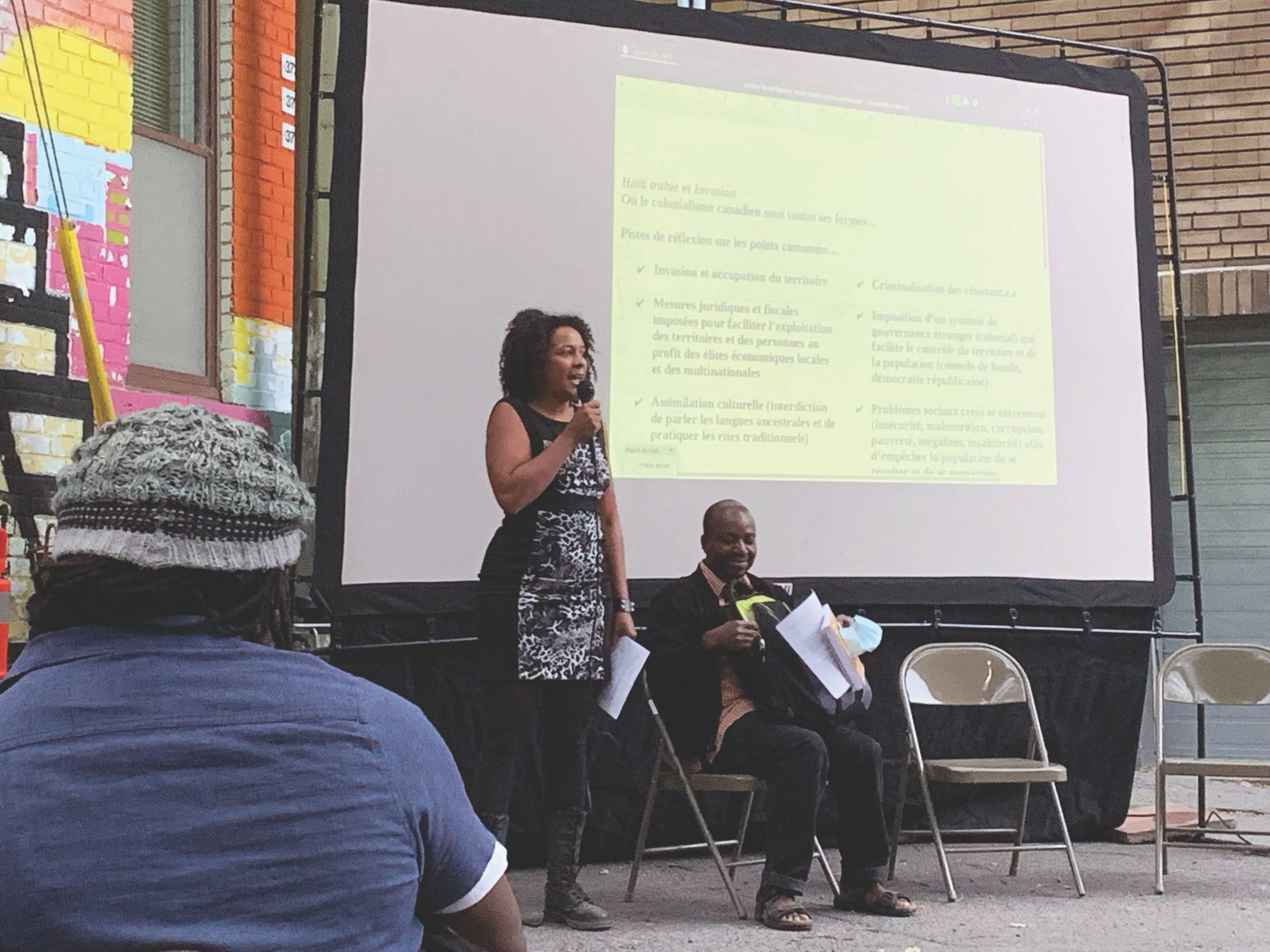The evening of Sept. 2 was chilly, but the back alley of the Milton Park Housing Co-op was hot with the buzz of political activism. Gathering for a viewing of Elaine Briere’s Haiti Trahie and Franklin Lopez’s Invasion put on by Cinema Politica Concordia, viewers and concerned citizens ate pizza, drank coffee, and listened to Burning Cop Car.
Both documentaries explore Canada’s role in the systemic racial and imperial oppression of people of colour within, and beyond, the Canadian border. In Haiti Trahie, Marie Dimanche, a Haitian activist, founder of Solidarité Québec-Haïti, and the French-English translator of the film, examines how Canada, France, the U.S., and the United Nations actively worked to undermine Haiti’s success as a democracy. Dimanche explained how external forces condemned Haiti to poverty, violence, and social strife by pressuring the government to adopt neo-liberal policies and privatize essential services—as well as instigating a coup d’etat and exiling the democratically elected Jean Bertrand to Africa.
“There was a veil of secrecy,” Dimanche said. “The Canadian people were kept deliberately ignorant of [their] government’s role in undermining Haitian democracy.”
Meanwhile, well-respected non-governmental organizations defended the Canadian government’s actions, promoting the paternalist picture of “white saviours” intervening in the affairs of a nation deemed incapable of handling its own.
“It’s not that [the Haitians] do not know how to govern [themselves], it’s that [the Canadian government does not] let them govern,” Dimanche said in a Q&A panel after the presentation of the films.
In a similar exploration of Canadian imperialism, Invasion documents the Canadian government’s egregious violation of the Wet’suwet’en nation’s sovereignty for the sake of the Pacific Trail pipeline. The film follows Freda Huston, a Wet’suwet’en activist, tribal chief, and Unist’ot’en spokesperson, as she resists the pipeline swallowing up her people’s territory and contends for the sanctity of the waters that her people rely upon.
“We have already said ‘no’ to these projects and that no pipelines will come on our territory,” Huston said, rejecting bottled water and tobacco offered by a Chevron representative. “No thanks, we have got clean water right there […] and that is plastic that adds to the landfills.”
After the film’s screenings, guest speaker Renel Exentus, a Haitian-Canadian activist and member of the REHMONCO, detailed how the great powers of the international community resist Haitian prosperity as those powers value profit over all else and feel entitled to Haiti’s workforce and resources. When they face resistance, they push back mercilessly.
Together, the films encapsulate the clear pattern of imperial entitlement at the core of Canada’s foreign and domestic policies. Through emotional narration, horror-stricken interviewees, and disturbing visuals of destruction and violence, both Haiti Trahie and Invasion demonstrate the extent to which the history of our own country is saturated in oppressive ethnocentrism that we must never forget, and never forgive.
Cinema Politica will screen Haiti Trahie and Invasion again on Sept. 18 at 18:00.








